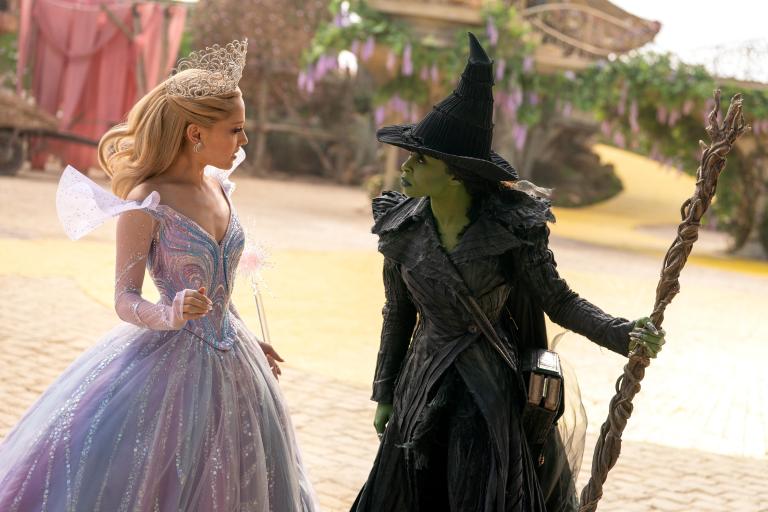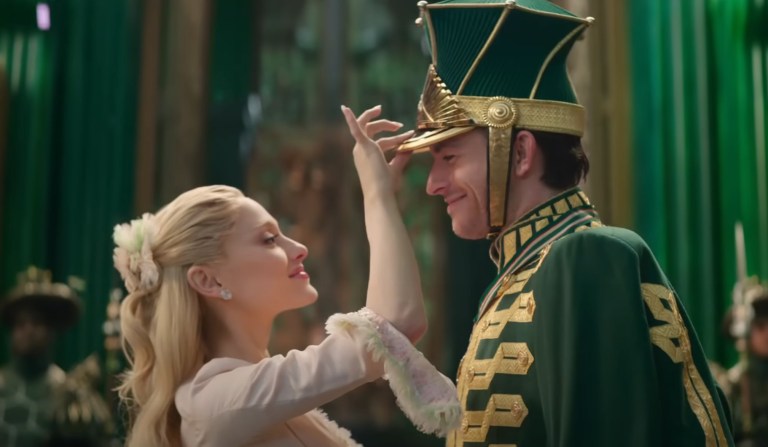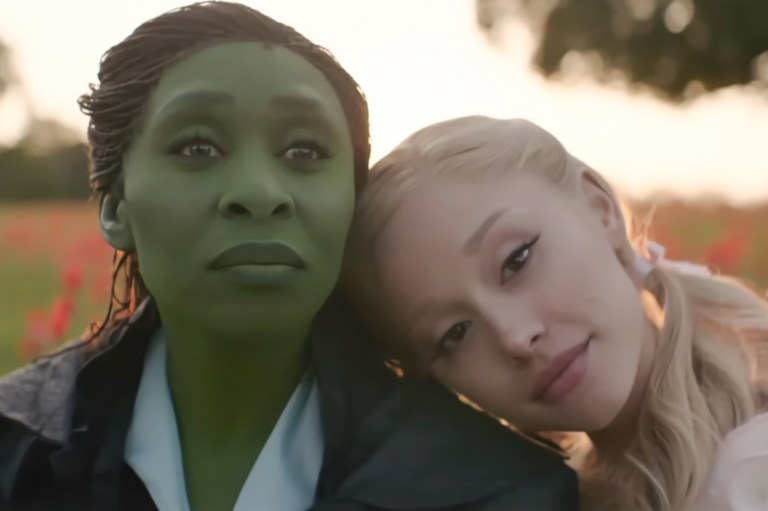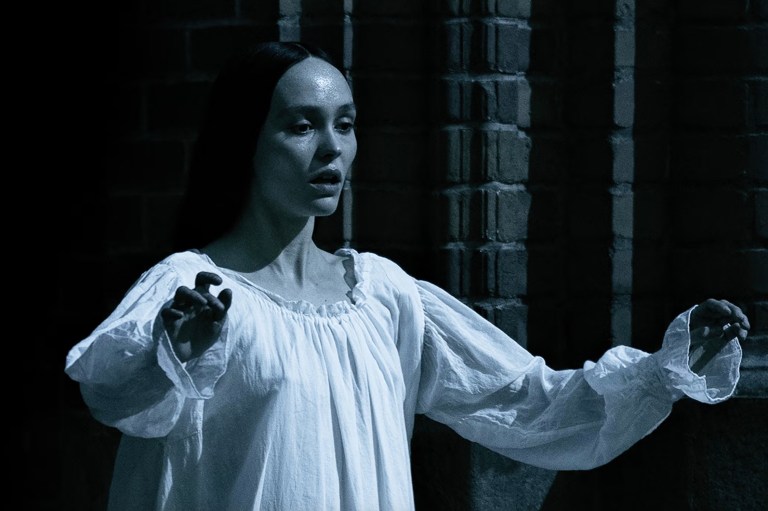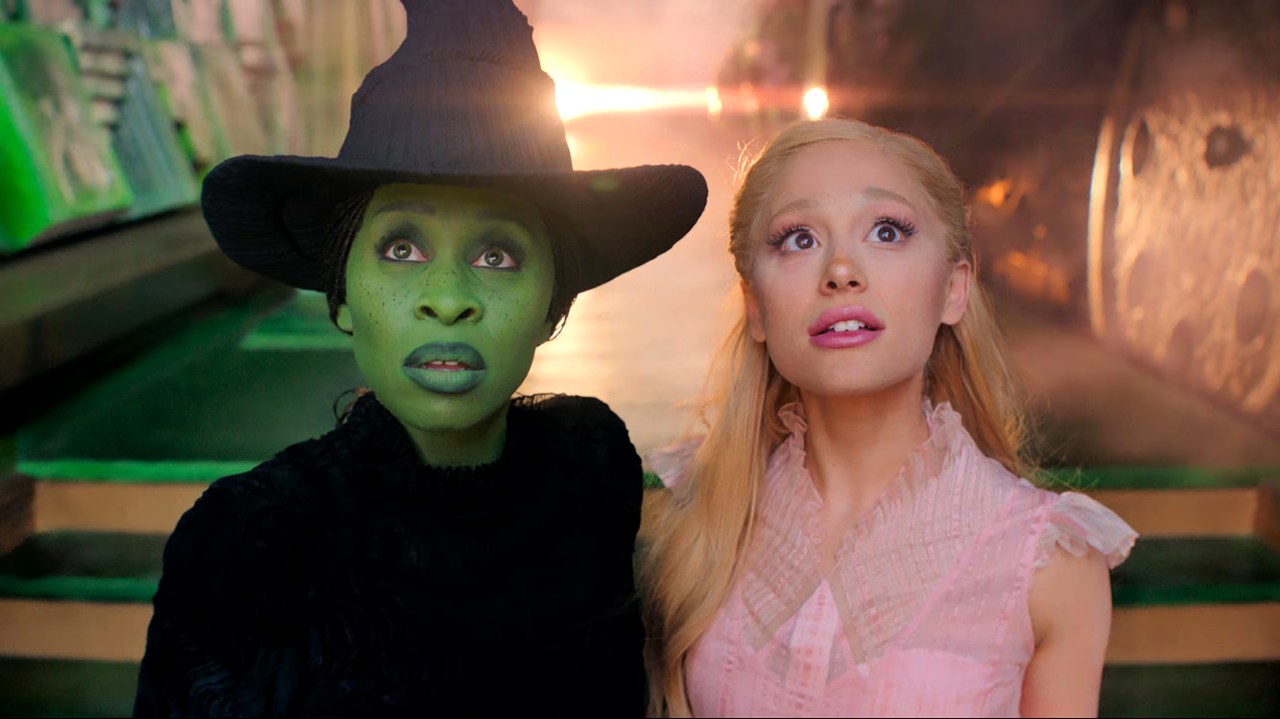
Review: ‘Wicked’ Evokes Movie Magic, Defying Expectations and Reality
A musical-lover's review of the new 'Wicked' movie, with only the mildest of spoilers.
By ![]() Jamie Lerner
Jamie Lerner
When you’re entrenched in musical theater social media, it seems like Wicked is everywhere.
Former musical theater kids are sharing their thoughts in comparison to the stage production while those new to the story are sharing their hot takes. A discourse on whether or not obsessed Wicked fans should be allowed to sing during the film has taken over Threads and the BBC’s choice to send a reviewer who had never seen the staged version has been hotly debated.
As one of those formerly obsessed fans who grew up watching, singing along with, and even reading the book of Wicked, my excitement for the film adaptation was matched only by my fear that it wouldn’t live up to its legacy. Luckily, this fear was quickly assuaged from the moment the title flashed across the screen in the unforgettable Wizard of Oz font from the 1939 film.
The first thing that really stood out about Wicked as a film adaptation was how it was able to pay homage to not just the stage musical, but to The Wizard of Oz. By changing the format from stage to screen, Wicked had direct references to the 1939 film, from stylized title cards to showing us the rainbow Dorothy notoriously travels over. Wicked recreates the world of Oz, bringing many of us back to not just the first time we saw Wicked, but the first time we saw The Wizard of Oz. As we enter Munchkinland, we get a full view of the map of Oz, which introduces the Wicked book, as the camera pans over the land.
In the stage production, the opening number was never the heart of the show but a simple storytelling device to give us a bit of Elphaba’s origin story, while painting the picture of how despised she was throughout Oz. But for anyone who knows how the story ends, watching Ariana Grande as Glinda sing along with “No One Mourns the Wicked” is a tearjerker. When you watch Wicked as a theater production, you’re often too far away from the actors to see the minutiae of their facial expressions, but in the film, we can see the emotional complexity behind Glinda’s eyes as she pretends to celebrate mourning the death of her former best friend.
As a whole, Wicked finds a way to both honor and even enhance its predecessors. The surprise cameo had every theater kid reeling in their seat, while every little nod to The Wizard of Oz, both visually and musically, contributed to building the world and legacy of Oz. Some reviews notoriously disparaged the inclusion of the animal rights plotline, failing to see that that is what drives Elphaba to “Defy Gravity.” The issue with the plotline was not its inclusion, but that the animals were made using CGI. It might’ve been more powerful if they were some sort of human-animal mix with prosthetics, like in the musical, to feel a bit more grounded in reality. Especially with Peter Dinklage as the voice of Dr. Dillamond, it would have been much more effective to see his face than to watch a CGI goat. Even still, Cynthia Erivo’s performance as Elphaba is more than enough to make up for the lack of human animals.
Cynthia grew to fame amongst musical theater lovers because of her 2015 Tony Award-winning performance in The Color Purple on Broadway, but those who have only heard her sing could not have anticipated how her emotional depth would translate to the screen, and oh boy did it translate. Not only did she sing Elphaba’s part in much of the same style as the original while adding a few of her own very welcome embellishments, but she embodied the character in a nuanced way that translated perfectly to the big screen. As an actor, Cynthia is so much more than the color of her skin, clearly cast because of her talent. But the fact that she is a Black woman playing Elphaba adds even more impact to the themes of racism and privilege that have always been part of Wicked’s story.
The political undertones of the film extend beyond the musical, making the allegory to the Holocaust even clearer. The animals of Oz are repurposed as a “common enemy,” forcibly getting removed from their jobs and homes, forced to hide in the shadows. So many people have misconstrued Wicked as a simple story to highlight animal rights. But it’s also a story about human rights and what happens when we treat intelligent, empathetic people like animals based on how they were born. To those who think this plotline takes away from the characterization and relationships between Elphaba, Glinda, and Fiyero, the way those characters react to a situation akin to the Holocaust is a true indicator of how they move about the world and how they grow throughout the story.
The biggest question on anyone’s mind before seeing Wicked is, of course, about the 2-hour, 45-minute run time. What have they added that makes Part I the same length as the full stage production? The answer, however, is not as straightforward as one would think — Wicked as a film is about the small moments as much as it is about the big ones.
Cynthia and Ariana’s rendition of “Defying Gravity” captures the show-stopping magic of the stage production, but the song is elongated to heighten the complexity of Glinda’s and Elphaba’s decisions in that moment. Throughout the film, moments like these are heightened — prolonged glances that may not have translated to a theater performance, world-building necessary to illustrating the setting, extra music cues that foreshadow moments from Act II or give us glimpses of the past by hearkening back to The Wizard of Oz — every extra minute is necessary to creating the magic of the film and showing us the magic of Oz that was present the moment Dorothy stepped over the rainbow. From the fan service to the unique and nuanced performances, not just from Cynthia and Ariana, but notably Jonathan Bailey as Fiyero and Jeff Goldblum as the Wizard, Wicked truly defies expectations. It supersedes the rules of reality to make true movie magic.
